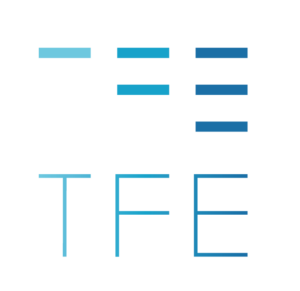TFE – Solar schools (South Africa)
Who, What & Where
- The operational model of the project was designed by TFE, with engineering, procurement and construction functions outsourced to our subcontracting partners
- A fully automated solar photovoltaic system has been installed at the Rocklands School. The system comprises 43 Jinko 470W PV panels, a pair of SunSynk inverters, a single Freedom Won 15kWh lithium-ion battery array and remote control and monitoring equipment. The system meets the primary energy needs of the school and excess energy produced during non-school periods is exported back to the national grid generating additional savings.
- The project is located at Rocklands Primary School in Mitchell’s Plain, Cape Town, South Africa
The Company
We are a distributed renewable energy consultancy with the goal of increasing access to finance and investments in the sector in sub-Saharan Africa. Our clients are mostly donors such as the World Bank & IFC, UNDP, AfDB, giz, the European Commission and the Rockefeller Foundation. We specialise in mini-grids, off-grid solar, captive power (C&I) and e-mobility. We bring a combined 30 years of practical experience in designing and delivering innovative mini-grid, captive power, off-grid solar (OGS) and e-mobility business- and financial models, electrification strategies, market assessments and investment advisory in the challenging context of frontier markets. Our consulting experience spans countries in Sub-Saharan Africa and Southeast Asia, including Nigeria, South Africa, Ethiopia, Uganda, Kenya, Rwanda, Zambia, Zimbabwe, Myanmar, India and many others.
The Challenge
South Africa’s energy sector is the most coal-dependent and carbon intensive of the G20 countries. As such, installing solar to displace grid electricity has a disproportionately positive effect on bringing down carbon emissions. At the same time, the national utility ESKOM is foundering in its ‘death spiral’ and the aging, over-burdened power stations are failing. The entire energy landscape is in disarray with daily energy black-outs disrupting industry, forcing the closure of small businesses and affecting the lives of millions of people. Young people are disproportionally impacted by these challenges, not least of all because of the vulnerability of their schools. Teaching is crippled by the black-outs and yet schools cannot afford a back-up solar system.
The Smart Schools project is designed to solve exactly this problem. We pay for and install a solar system to reduce the school’s dependency on the grid and keep the classrooms functioning through the black-outs. Smart meters measure all energy use and the school pay for each unit of solar electricity used at a rate pegged at 20% lower than the standard grid tariff. This revenue is used to pay back any initial loans and provide for all maintenance of the system. On top of this, money is set aside for a School Improvements Fund for the school to spend on new library books or computers (for example). Finally, funds are also set aside for the Pay-It-Forward Fund which ensures that after a few years, there is enough capital in place to install solar on another school.
This way the project is not only sustainable, but doubles its impact every few years. Through the Smart Schools project, finance finally becomes regenerative.
Renewable Solution
The system comprises 43 Jinko 470W PV panels, a pair of SunSynk inverters, a single Freedom Won 15kWh lithium-ion battery array and remote control and monitoring equipment. This system is designed to generate 28,079 kWh of electricity per year, which saves the school 70% of their electricity costs.
Project Financing and Costs
This pilot project was funded by ABInBev.
Project Outcome
The Rocklands School now enjoys an uninterrupted energy supply during blackouts. The monthly energy bills has also decreased significantly. For a video of the project, click here:
https://www.youtube.com/watch?v=iS6qY-FrTGM
Next Steps
We are now looking for funding to roll this model out to other schools in South Africa and beyond.

